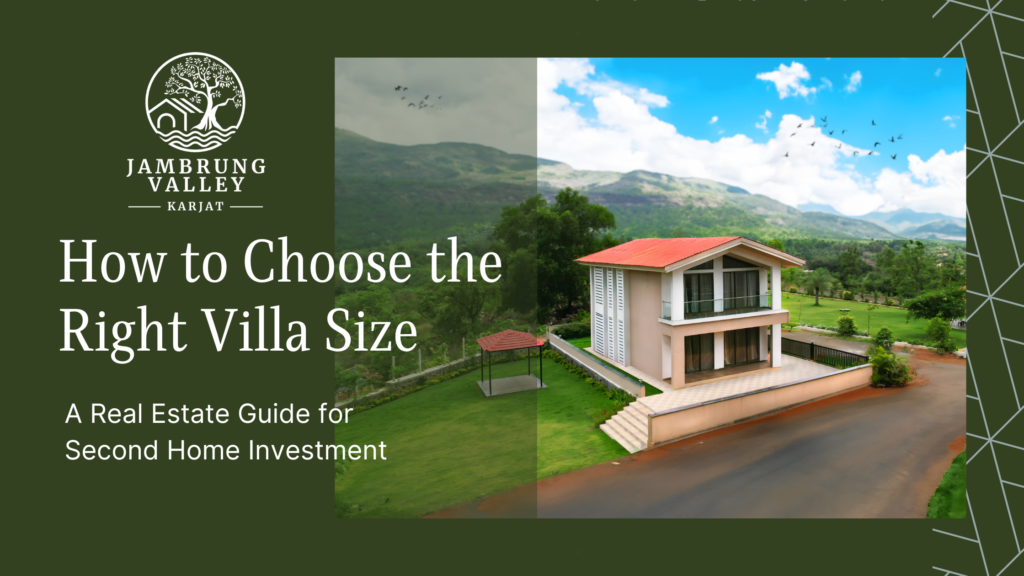
Selecting the right villa size is a crucial decision that impacts your lifestyle and financial future. This guide will help you navigate the process of choosing the perfect villa size for long-term living.
Assess Your Current and Future Family Size
Consider your family’s composition now and potential changes over the next 5-10 years:
- Current household members
- Plans for children
- Possibility of elderly parents moving in
- Potential for adult children returning home
For example, a young couple might opt for a 3 or 4-bedroom villa to accommodate future children, rather than upgrading in a few years.
Evaluate Room Requirements
Think beyond just bedrooms:
- Home office needs (one or two?)
- Guest room preferences
- Number of bathrooms (aim for at least one bathroom per two bedrooms, plus a powder room)
- Specific rooms for hobbies or entertainment
Consider the flexibility of spaces. A room that can serve as both an office and guest room might be more efficient for some families.
Determine Ideal Square Footage
While needs vary, here are some general guidelines:
- 1-2 people: 1,000-1,500 sq ft
- 3-4 people: 1,500-2,500 sq ft
- 5+ people: 2,500+ sq ft
Remember, larger homes require more maintenance and have higher utility costs. Be realistic about how much space you’ll actually use daily to avoid wasting energy on unused rooms.
Consider Lifestyle and Entertainment Needs
Your villa should accommodate your lifestyle:
- Frequency of hosting guests
- Desire for outdoor living spaces
- Hobbies requiring dedicated areas (e.g., art studio, workshop)
If you love hosting dinner parties, a spacious dining room and living area are essential. For outdoor enthusiasts, prioritise villas with generous patios or gardens.
Analyse Storage Requirements
Don’t overlook storage needs:
- Closet space
- Attic or basement potential
- Garage size (for vehicles and additional storage)
- Outdoor storage for gardening tools or furniture
Adequate storage can significantly impact your daily life and the overall functionality of your home.
Evaluate Property Size
Consider the land your villa sits on:
- Desired yard size
- Maintenance preferences
- Future expansion possibilities
- Privacy needs
A larger lot offers more privacy and room for outdoor activities but requires more upkeep. It might also allow for future additions or outdoor structures.
Think About Energy Efficiency
Larger villas consume more energy, but efficient design can help:
- Look for double-paned windows
- Check insulation quality
- Inquire about HVAC system efficiency
- Consider smart home features for better energy management
These features can help offset the increased energy demands of a larger home, keeping utility bills and carbon footprint in check.
Location and Zoning Considerations
Research local factors that might affect your choice:
- Zoning laws limiting home sizes
- Neighborhood norms for villa sizes
- Future development plans in the area
Ensure your villa’s size aligns with local regulations and community standards.
Resale Value
While focusing on your needs, consider future marketability:
- Average villa sizes in the area
- Market demand for different home sizes
- Potential for future modifications
Aim for a size that’s versatile and appealing to a broad range of potential future buyers.
Budget and Financing
Remember that size affects more than just the purchase price:
- Property taxes increase with size
- Insurance costs are typically higher for larger homes
- Maintenance and utility costs scale with square footage
Factor these ongoing expenses into your budget when deciding on the right size for your villa.
Conclusion:
Choosing the right villa size involves balancing your current needs, future plans, and financial considerations. By carefully evaluating these factors, you’ll be better equipped to make an informed decision on your ideal villa size. Remember, the goal is to find a home that provides comfort, functionality, and room for growth without overextending your resources.



